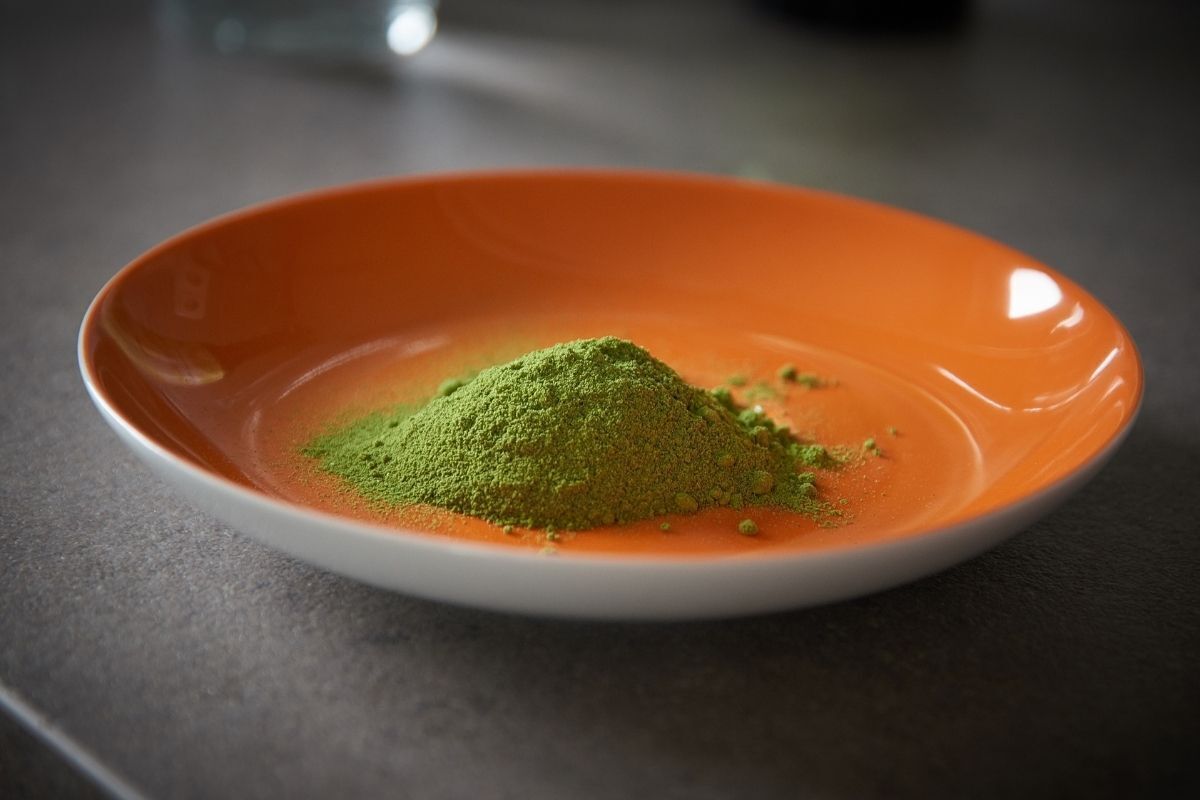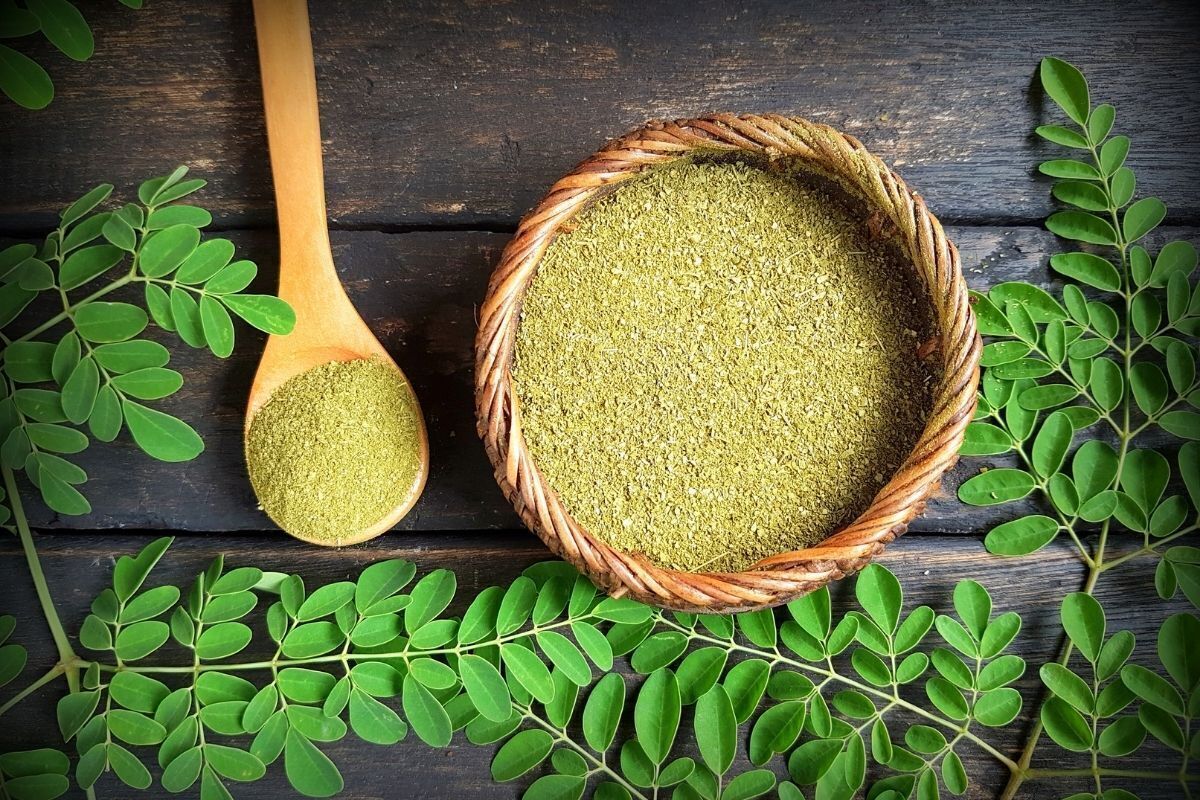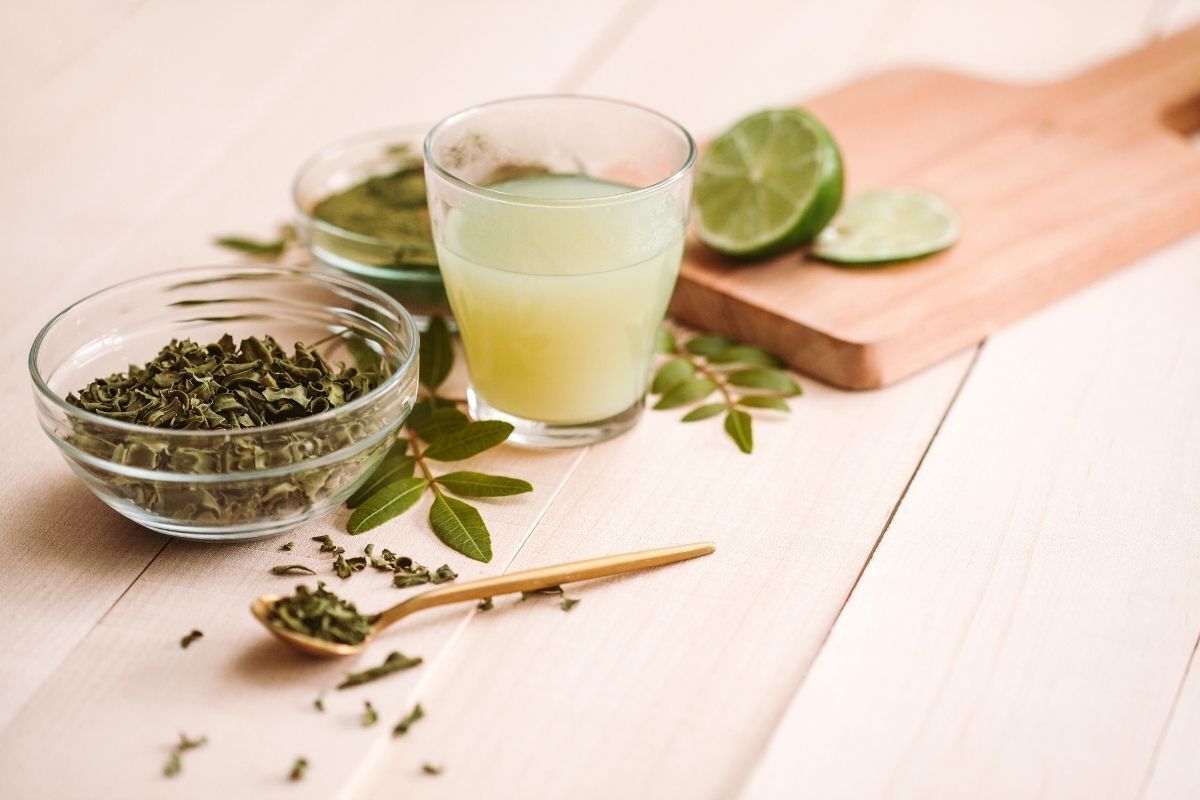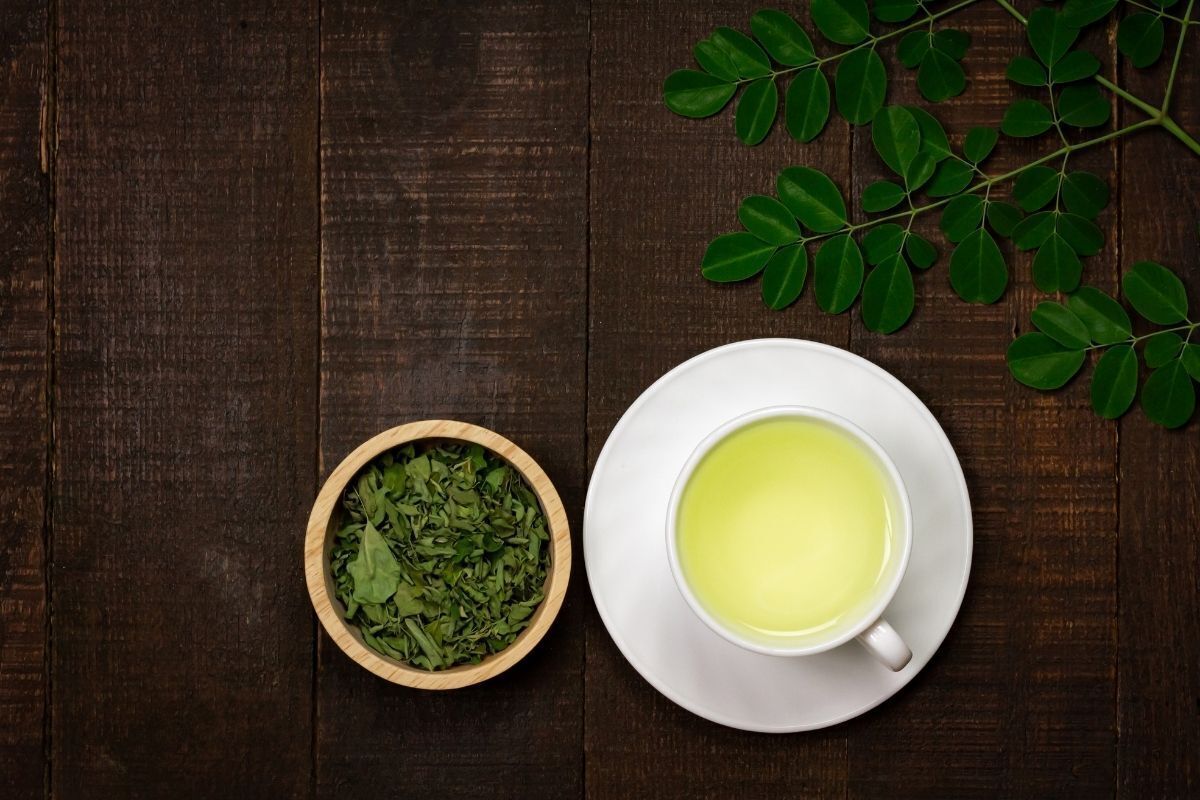Table of contents
Why take Moringa Tea?

It is a fact that teas have fantastic properties that help in the health and well-being of human beings. In various cultures, tea is widely consumed exactly for the healing of diseases and health care. This is the case of moringa tea.
Because it has great medicinal properties, moringa is a great alternative for you, who are looking to complement some disease treatments. In addition, its intake is easy and occurs through teas, capsules or powders to mix in food. Learn more about this plant and its properties in this article!
More about Moringa Tea

Moringa, also known as moringa of peace or tree of life, is a medicinal plant that has a large amount of vitamins and minerals.
Because it has many nutrients, this plant has been used to treat some respiratory diseases, to aid in weight loss, to reduce anxiety, among other diseases and symptoms. Learn more about the plant in the topics below!
Properties of Moringa Tea
The possible properties of moringa bring several very beneficial actions for health. Among them, we can consider: antioxidant action, anti-inflammatory, analgesic, antidiabetic, vasodilator, anticholinergic, antirheumatic, antihypertensive, antimicrobial, hepatoprotective and, finally, healing.
Besides, it is important to emphasize that the properties of the plant mentioned above are still under study, so several results have no definitive conclusion yet. It is a plant with several aspects to be studied, with benefits already identified, but that still need time to be proven its real effectiveness.
Origin of Moringa
Moringa oleifera is a tree native to parts of Asia and Africa. The tree has many branches and is laden with small greenish leaves. Of the 14 identified species, two are the most popular - these are: moringa oleifera and moringa stenotepala.
Native to the slopes of the Himalayas, Moringa oleifera was recognized by Ayurvedic medicine as an important medicinal herb 4 thousand years ago. This Indian plant ended up spreading around the world and arriving in Brazil, while Moringa stenotepala is native to East Africa, but both have large amounts of nutrients. Moringa oleifera does not need much water, making it easy to grow.
Side effects
It is always good to be aware of the side effects of what we consume, because a certain plant that we ingest may have some undesired effect or cause consequences that we cannot imagine. Thus, the consumption of moringa brings with it some known side effects, such as nausea, vomiting, and diarrhea.
It is worth noting that it is very important to avoid the consumption of the root and its extracts without the guidance of a professional. This is because they contain toxic substances that, when used in excess, can cause paralysis and even lead the person to death.
Contraindications
Moringa is still being studied regarding contraindications, but what is known is that excessive consumption of the plant can result in vomiting, nausea, diarrhea, kidney stones and even liver damage.
In addition, it is important to know that the consumption of moringa is not recommended for pregnant or lactating women, since its side effects can interfere with pregnancy and the production of breast milk. People with thyroid problems should also avoid the consumption of this plant.
It is worth noting that in 2019, Anvisa banned the sale of any product containing moringa, precisely because there are few studies that prove the safety of its consumption for health.
Benefits of Moringa Tea

Now that you know a little more about this miracle plant, it's time to learn about the various benefits that can be found in moringa. There are so many that we can understand through them the importance of this plant. Check them out below!
Relief of respiratory disease symptoms
Moringa has several properties that help in diseases. Thus, chronic respiratory diseases such as asthma, according to some studies, can be treated or alleviated through its use.
All this is possible because it helps to elevate the hemoglobin concentrations and, consequently, of oxygen circulating in the blood. In other words, it can be a good ally in these cases.
Helps prevent diabetes
We know that the main feature of diabetes is high blood sugar levels, so several studies have shown that moringa oleifera can help lower blood sugar levels. However, most of the evidence is based on animal studies, with only a few studies based on humans.
This benefit through the consumption of moringa is only possible because it has antioxidant properties, which can regulate oxidative stress in the body. Thus, it ends up being responsible for reducing blood sugar levels, in addition to protecting the cells of our body.
Good for the heart
Moringa is a plant very rich in fiber, so it can help the absorption of cholesterol in the intestine and prevent the formation of fatty plaques in the arteries, thus reducing the risk of cardiovascular disease.
In addition, knowing that moringa has an antioxidant effect, this aspect becomes essential to reduce inflammation in the body. Thus, it helps a lot for heart health.
Helps to lose weight
For those who are following firmly in the plan to lose a few pounds, know that, being rich in fiber and protein, moringa helps increase the feeling of satiety - in other words, it helps you not feel so hungry.
Thus, by combining this benefit of moringa with a good diet, your weight loss goal can be achieved. Besides helping to reduce the amount of food and calories ingested because of the feeling of satiety, some animal studies also indicate that moringa can help reduce the amount of fat accumulated in the body.
So, here's a tip: to achieve these benefits it is recommended to maintain a healthier diet, accompanied by a regular practice of physical activity. Moringa comes in to enhance this process.
Antioxidant
Antioxidants are substances that have the ability to protect cells against the effects of free radicals (toxic molecules for our body) produced. As the main benefit of moringa, it is able to fight free radicals, protecting cells against aging and degenerative diseases.
In addition, some studies on women have concluded that taking 1.5 teaspoons of moringa oleifera leaf powder every day for three months significantly increases the level of antioxidants in the blood.
Anti-inflammatory
We know that inflammation is a natural response of the body to infection or injury - that is, it is a protective mechanism of the body that, over a long time, can cause discomfort.
Thus, due to the presence of isothiocyanates, quercetin and chlorogenic acid (substances that help decrease the inflammatory process in the body), moringa could be used to help relieve inflammatory problems, such as rheumatism and even prostate inflammation, for example.
In addition, it has ingredients that act as natural anti-inflammatories, benefiting the treatment of chronic pain. It can also be used as a remedy for fibromyalgia, through the extract of the herb.
Helps control pressure
If you have hypertension problems, you will be very pleased to know about this other benefit of moringa: due to the presence of tocopherols, polyphenols and flavonoids in its composition, this plant could contribute to the regulation of blood pressure. This is because these substances have a vasodilating effect, being able to relax blood vessels and improving blood circulation.
Improves immunity
If you are looking for alternatives to improve your immunity, know that moringa is a good ally for this improvement, for having vitamin C, polyphenols and beta-carotene in its composition (substances capable of helping to strengthen the immune system). Thus, it helps to increase the body's natural defenses.
Because moringa contains high levels of nutrients, it has seven times more vitamin C than oranges, four times more vitamin A than carrots, twice as much protein as yogurt, four times more calcium than cow's milk, three times more iron than spinach and three times more potassium than bananas.
Thus, it is a great vitamin complex, which helps improve immunity. But remember: if you want to have a good result in improving your immunity, moringa alone is not enough. Maintain a healthy diet, sunbathe constantly and practice some kind of physical activity to improve your immunity.
Analgesic effect
Because it contains a large amount of anti-inflammatory substances, moringa oleifera is very effective for the treatment of some types of pain, such as headache and pain that is caused by some types of inflammation.
Besides having ingredients that act as natural anti-inflammatories, it acts in benefit for the treatment of chronic pain, being used as a remedy for fibromyalgia through the extract of the herb.
Improves the gastrointestinal system
Moringa has several properties that help in the health of humans. For example, by presenting large amounts of fiber, this miracle plant is able to greatly help the gastrointestinal system. It has properties that help prevent and assist the treatment of stomach ulcers and also helps fight constipation. In other words, it proves to be a great ally in this sense.
Good for the skin
The moringa plant is ideal for those seeking a higher intake of amino acids and plant-based proteins. It is classified as a superfood, offering proteins that help improve skin and cartilage tissues.
In addition, containing the presence of vitamins B, C, E and A, moringa favors the formation of collagen, in addition to facilitating the healing process of the skin and contribute greatly to the hydration of the same.
Helps in menopause
One of the benefits of moringa is exclusively for those who suffer greatly from the consequences of menopause. Because this plant helps control levels of inflammation and oxidative stress, it contributes to the menopausal phase.
Thus, moringa can help maintain the concentration of hormones during this phase, decreasing the intensity of symptoms.
Helps prevent cancer
It is amazing how many benefits moringa can offer for health. Some studies have already been done with the plant that pointed out that moringa has anti-cancer effects, because it stimulates the destruction of cancer cells, mainly in the breast and intestine regions.
However, consult your doctor to understand how the plant can help you, depending on your case.
Helps control cholesterol
Foods such as flaxseed, oats and almonds are able to help reduce cholesterol. According to some animal and human studies, it was possible to identify that moringa can also contain similar effects to these foods, helping to reduce cholesterol in the body.
Thus, this is a great benefit brought by the plant, mainly due to the fact that high cholesterol can also cause an increase in heart diseases.
Acts against the toxic effect of arsenic
Long-term exposure to high levels of arsenic is something that can lead to health problems. In addition, contamination of water and food by this substance is a problem in many parts of the world.
Some studies show that exposure to this element for a long period can increase the risk of having diseases such as cancer and some heart diseases. Thus, studies on rats and mice report that the leaves and seeds of moringa oleifera can protect some effects caused by arsenic.
Moringa Tea

A very simple way to enjoy the benefits of moringa is to prepare a moringa tea, which extracts many beneficial properties for health and is one of the best ways for this. Check below some indications about the tea, the ingredients to make and how it should be done so that you can enjoy all the benefits of the plant!
Indications
First of all, it is important to know that the real moringa tea comes indicated on the package as moringa oleifera. The taste of moringa tea is not one of the best, so sweeten it with honey or another type of sweetener to make it to your liking.
Another important guideline is: do not overdo the quantity when drinking moringa tea, to avoid adverse effects. Finally, besides tea, you can find moringa in several forms - including capsules, seeds or powder.
So, look for these ingredients in natural product stores and use according to the label on the package.
Ingredients
The ingredients that make up moringa tea are quite simple, and they are: 1 teaspoon of dehydrated moringa leaves (which you can find in natural products stores, in some specific pharmacies and specialized stores), 1 liter of filtered water and sweetener to taste (if you want, but it is not mandatory).
How to do
It is very simple to make moringa tea, so follow these steps and make it yourself: first, put 1 liter of filtered water to heat. When the water comes to a boil, turn off the heat and add 1 teaspoon of moringa leaves.
After that, cover and leave for 5 minutes, so that the leaves release their properties in contact with hot water. After spending the time in question, strain the moringa tea, sweeten to your liking and it will be ready to drink.
How often can I take Moringa Tea?

Moringa tea, although it has numerous benefits for health and human well-being being studied, is not among the list of plants approved by Anvisa for consumption by humans. To date, there are few studies that prove all the benefits that are talked about, even about what is the minimum and maximum amount that can be ingested to obtain these nutrients.
So, until all its effectiveness is proven and it is, in fact, safe and indicated for consumption, it is important to avoid it. Some experts indicate that people who have the habit of consuming this plant (and do not want to stop ingesting the tea) should consume only two cups of the drink, or 500ml of this tea per day, because these are the amounts that seem to present no risk to health.

